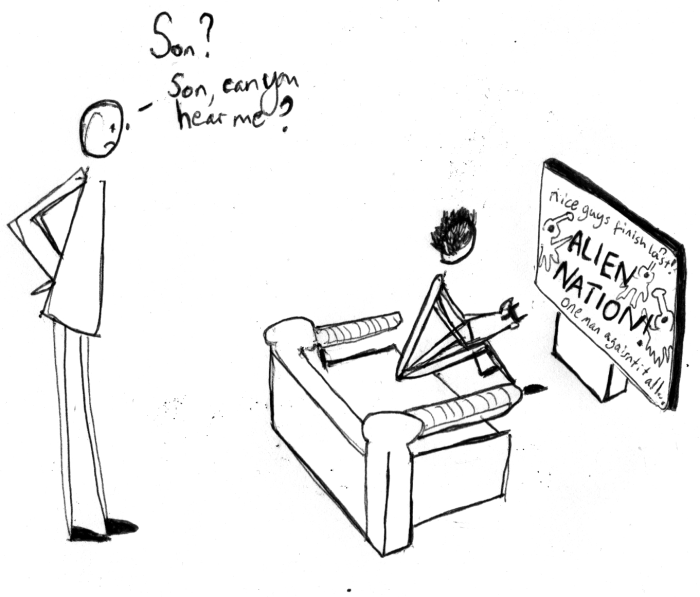Which describes teens that feel distant from family members – Navigating Distance: Understanding Teens’ Emotional Disconnect from Family explores the complex dynamics that contribute to feelings of distance between teenagers and their family members. This article delves into the emotional, communicative, generational, and relational factors that shape this phenomenon, offering insights and strategies for fostering connection and bridging the gap.
As teens navigate the tumultuous waters of adolescence, they often find themselves at a crossroads, grappling with a growing sense of independence and a desire for autonomy. This can lead to a perceived emotional distance from their family members, who may struggle to understand their evolving needs and perspectives.
Emotional Distance

Emotional distance between teens and their family members is a common issue that can have a significant impact on both the teens and their families. There are many reasons why teens may feel emotionally distant from their family members, including:
- Changes in brain development:As teens go through puberty, their brains undergo significant changes that can affect their emotional regulation and communication skills.
- Increased independence:Teens naturally begin to seek more independence from their parents as they develop their own identities and values.
- Peer influence:Teens often spend more time with their friends than with their family members, which can lead to them adopting different values and beliefs.
- Family conflict:Conflict between teens and their parents can create feelings of anger, resentment, and distance.
- Unresolved trauma:If teens have experienced trauma in the past, they may be reluctant to share their feelings with their family members.
The emotional distance between teens and their family members can have a negative impact on both the teens and their families. For teens, it can lead to feelings of loneliness, isolation, and depression. For family members, it can be frustrating and hurtful to feel like they are losing their connection with their child.
Communication Barriers, Which describes teens that feel distant from family members
Communication barriers are another common issue that can contribute to feelings of distance between teens and their family members. These barriers can include:
- Different communication styles:Teens and their parents often have different communication styles. Teens may prefer to communicate through text or social media, while parents may prefer to communicate face-to-face.
- Unclear expectations:Parents and teens may have different expectations about how much and what kind of information they should share with each other.
- Lack of active listening:Both teens and parents may be guilty of not listening to each other attentively. This can lead to misunderstandings and resentment.
- Negative communication patterns:If teens and parents have a history of negative communication patterns, such as arguing or yelling, it can be difficult to break out of these patterns.
Communication barriers can make it difficult for teens and their family members to connect with each other and can lead to feelings of distance and isolation.
Generational Differences
Generational differences can also contribute to feelings of distance between teens and their family members. These differences can include:
- Values:Teens and their parents may have different values about important issues such as education, work, and relationships.
- Beliefs:Teens and their parents may have different beliefs about the world and their place in it.
- Experiences:Teens and their parents have grown up in different times and have had different experiences that have shaped their views of the world.
Generational differences can make it difficult for teens and their family members to understand each other’s perspectives and can lead to feelings of distance.
Lack of Trust
A lack of trust can also lead to feelings of distance between teens and their family members. This can be due to a variety of factors, such as:
- Broken promises:If teens feel like their parents have broken promises in the past, they may be less likely to trust them in the future.
- Invasion of privacy:If teens feel like their parents are invading their privacy, they may be less likely to share their thoughts and feelings with them.
- Unfair treatment:If teens feel like they are being treated unfairly by their parents, they may be less likely to trust them.
A lack of trust can make it difficult for teens and their family members to build a strong relationship and can lead to feelings of distance.
Family Conflict
Family conflict is another common issue that can contribute to feelings of distance between teens and their family members. This conflict can be about a variety of issues, such as:
- Discipline:Teens and their parents may have different ideas about what constitutes appropriate discipline.
- Curfews and other rules:Teens and their parents may have different ideas about what time teens should be home and what other rules they should follow.
- Dating and relationships:Teens and their parents may have different ideas about who teens should date and what kind of relationships they should have.
Family conflict can create a lot of stress and tension in the family and can lead to feelings of distance between teens and their family members.
Essential FAQs: Which Describes Teens That Feel Distant From Family Members
Why do teens feel emotionally distant from their family members?
Teens may feel emotionally distant from their family members due to factors such as changing values, differing perspectives, lack of open communication, and perceived lack of understanding.
How can communication barriers contribute to feelings of distance between teens and their families?
Communication barriers, such as ineffective listening, misinterpretations, and avoidance of difficult conversations, can hinder open dialogue and create misunderstandings, leading to feelings of distance.
What role do generational differences play in shaping the emotional distance between teens and their families?
Generational differences in values, beliefs, and experiences can create a sense of disconnect between teens and their family members, as they may perceive the world through different lenses.

